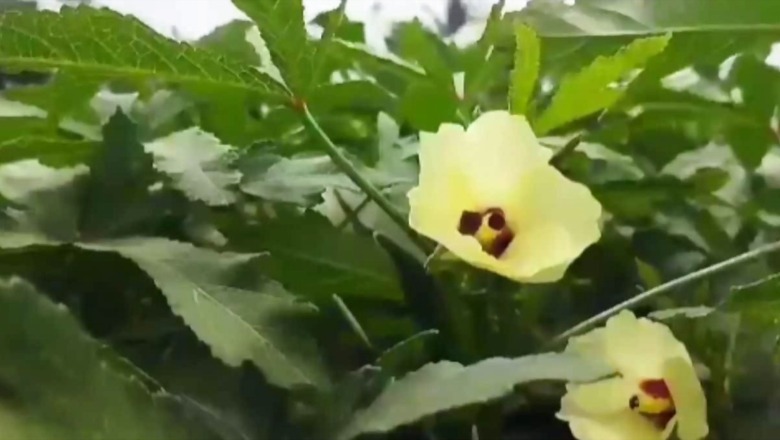
views
Farmers in various regions of Tamil Nadu like Thiruvadi, Pidagam, and Arasur in Viluppuram district are currently cultivating a good quantity of okra in their agricultural fields. Okra, also called lady’s finger, is the primary crop of these districts. Similarly, in the Thiruvadi village of Athiyur, farmers are engaging in the cultivation of okra on over 50 acres of land.
Okras can be cultivated throughout the year and need sufficient quantities of water. If the water supply is in abundance, the crop yields with higher cultivation. What makes them one of the best crops is they can be grown in all kinds of soil but preferably in sandy loam and clay-loam soils. Cultivating these crops in large quantities will mean a profitable harvest for farmers as it results in higher profits than other vegetable crops. Recently, the price of okras has plummeted.
In Trichy, farmers were happy with the procurement rate of about Rs 50/kg roughly two months ago. However, later the prices crashed to as low as Rs 2/kg. Many incidents were reported where farmers dumped the produce into wells or destroyed the cultivation. Reportedly, last week, the crop was being sold at a price ranging from Rs 25 to Rs 27 per kilogram. Currently, it is being sold for Rs 10-15/kg. Now, the farmers are receiving just Rs 2.50-3.50/kg from wholesalers.
Despite increased cultivation of the crop, prices have declined steeply and is no longer a profitable crop. The sudden drop in prices has been attributed to the surplus supply of the crop in the market, which further led to losses for the farmers and left them feeling agitated. Further, due to the Onam festival, okras saw a high demand, which hurt the prices of it.
Farmers have also expressed their concerns regarding the drop in prices of their important crop of the year and the continuous challenges they are facing regarding the prices. Reportedly, they have requested the government to intervene and stabilize the prices of the okras in the market so that it can meet the demand as well as cause no loss to the farmers.




















Comments
0 comment